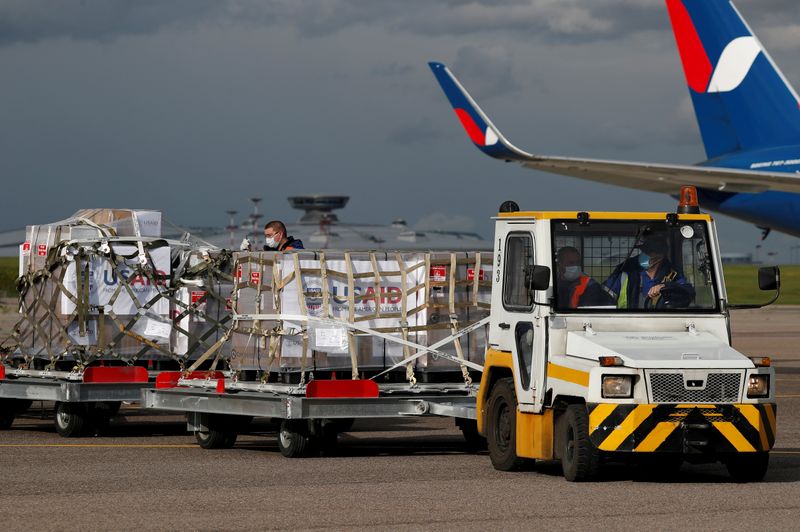By Marisa Taylor
(Reuters) - When U.S. President Donald Trump agreed to accept a shipment of ventilators from Russian President Vladimir Putin at the height of the coronavirus outbreak, the White House did not alert the FDA as it headed to New York and New Jersey, Reuters has learned.
Instead, the Food and Drug Administration heard about the arrival of the shipment from the Federal Emergency Management Agency (FEMA) on March 31st, the day before the 45 Aventa-M ventilators were delivered, the health regulator told Reuters.
At the time, the states were girding for a crush of COVID-19 patients likely to need intensive care and thousands of ventilators to help them breathe.
New Jersey and New York did not end up using the ventilators. But details first reported by Reuters about the shipment has drawn scrutiny from Congressional Democrats. The last minute notification meant the ventilators headed for the epicenter of the U.S. coronavirus outbreak did not first receive FDA authorization.
"FEMA and FDA were aware in general of items included on the flight, but did not have all details on the products before the shipment arrived on April 1,” an FDA spokeswoman said.
Earlier this month, Russia suspended use of some of the Aventa-M ventilators in its own hospitals after six people died in fires that reportedly involved the devices.
New York Congresswoman Carolyn Maloney, who oversees the House Oversight and Reform Committee, said the Reuters report raises “serious concerns about whether President Trump and his aides at the White House may have kept FDA experts in the dark while they rushed to bring in these ventilators from Russia.”
The White House declined to comment on its role, and previously referred to a FEMA statement that had emphasized the urgent need for the ventilators.
“Russia sent us a very, very large planeload of things, medical equipment, which was very nice," Trump said on March 30.
A day later, the Russian embassy announced that “Russia may send a plane with medical equipment and protection gear to the United States.”
U.S. officials have said the ventilators were never supplied to local hospitals, which ultimately did not need as many as feared, and they are being returned to FEMA.
As it turned out, the Aventa-M ventilators required an electrical voltage not compatible in the United States, a New Jersey health official told Reuters.
To help cope with the fast-spreading coronavirus pandemic that has now infected more than 1.7 million Americans and killed over 100,000, the FDA had introduced an emergency protocol to allow ventilators to be distributed without the agency's routine, and more time-consuming, approval process.
The Russian ventilators, however, did not even receive the FDA's expedited Emergency Use Authorization (EUA) before being delivered to New York and New Jersey, the agency told Reuters. The FDA has issued EUAs for ventilators from other sources.
Maloney joined other Democrats in expressing alarm this week about the way the U.S. government went about accepting the Russian equipment, and its decision to later ship U.S. ventilators to Russia while the epidemic is still underway at home.
"It is troubling that potentially unsafe medical devices were able to enter the U.S. apparently with minimal or no formal regulatory review,” New Jersey Congressman Frank Pallone, Jr., who chairs the House Energy and Commerce Committee that has oversight of the FDA, said in a statement.
